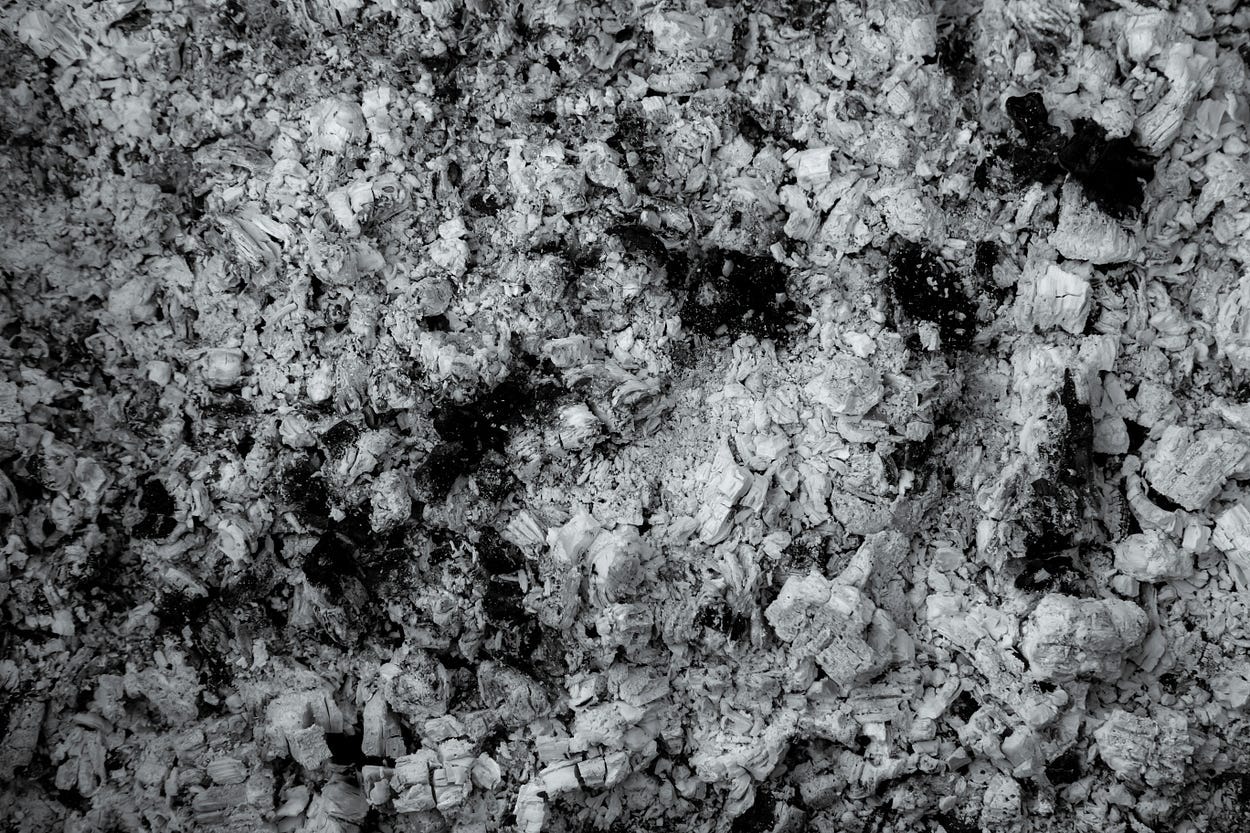
Hea has been unemployed for a little over two years, and she can’t see that ending anytime soon. Her burnout has been catastrophic — and so far, bottomless.
“I went on short-term disability at first, for my mental health, but after that ran out I used up all of my sick days. Then I applied for a longer medical leave, which shockingly, I got for a little while,” she explains. “I was luckier than most people, who don’t get any paid time off. But then they mysteriously eliminated my position. I’ve been floundering ever since.”
Hea worked in media, for a podcast network that relied upon subscription drives and deals with advertisers. Tracking down new funding sources and keeping ad buyers satisfied was a large component of her job. The work was filled with uncertainty, and the company culture suffused with blame.
No amount of dedication from Hea was enough to satisfy her bosses, and her relationships with clients always felt shaky, and had to be constantly maintained. She was forever connected to her phone, having nightmares about brand partnerships and ad-read recording sessions. By the time she was hospitalized for exhaustion and thoughts of self-harm, Hea had been working day and night, without any real weekend to speak of, for years. Burnout was Hea’s mind’s way of slamming on the breaks, forcing her to stop pushing herself when nothing else could.
In the past two years, what has Hea done? “I’ve slept a lot,” she says, “but not well. I’ve watched Sex and the City all the way through about fifteen times. I’ve started a dozen craft projects and didn’t make progress on any of them. And I replaced all my dishes with paper plates, because all I do is order takeout, I don’t cook.”
She feels completely demoralized. And she doesn’t understand why such a long period of rest hasn’t yielded any improvement in her health. After twenty-five months, she still doesn’t have the energy to clean her house, run errands, or attend job interviews. Her attention and energy are still completely shot.
“Even something as simple as filling out a job application is a thing I have to beat myself up for days to do, and when it’s done it’s like okay, back to the couch to collapse in a depression nest for the day,” Hea says. She thinks for a moment. “How am I supposed to keep a job when I can barely apply to one?”
What I want to say to Hea, but don’t, is that perhaps she’ll never be able to work a job again at all. Like a great many burnout sufferers, her productive capacity may never rebound to its pre-burnout levels. The skill losses she’s endured and the damage done to her body by overwork might never be fully repaired.
I want to share that burnout is a seismic shift in a person’s priorities, one that the body enacts by force as a self-preservation tactic — and that some people are so transformed by the experience they can never piece their old life back together. But what’s most difficult (and most delicate) to tell Hea is that all of this might be a good thing. In many ways, burnout is an attempt by the body to give us our freedom back — but it can only do so by taking away our ability to be exploited.
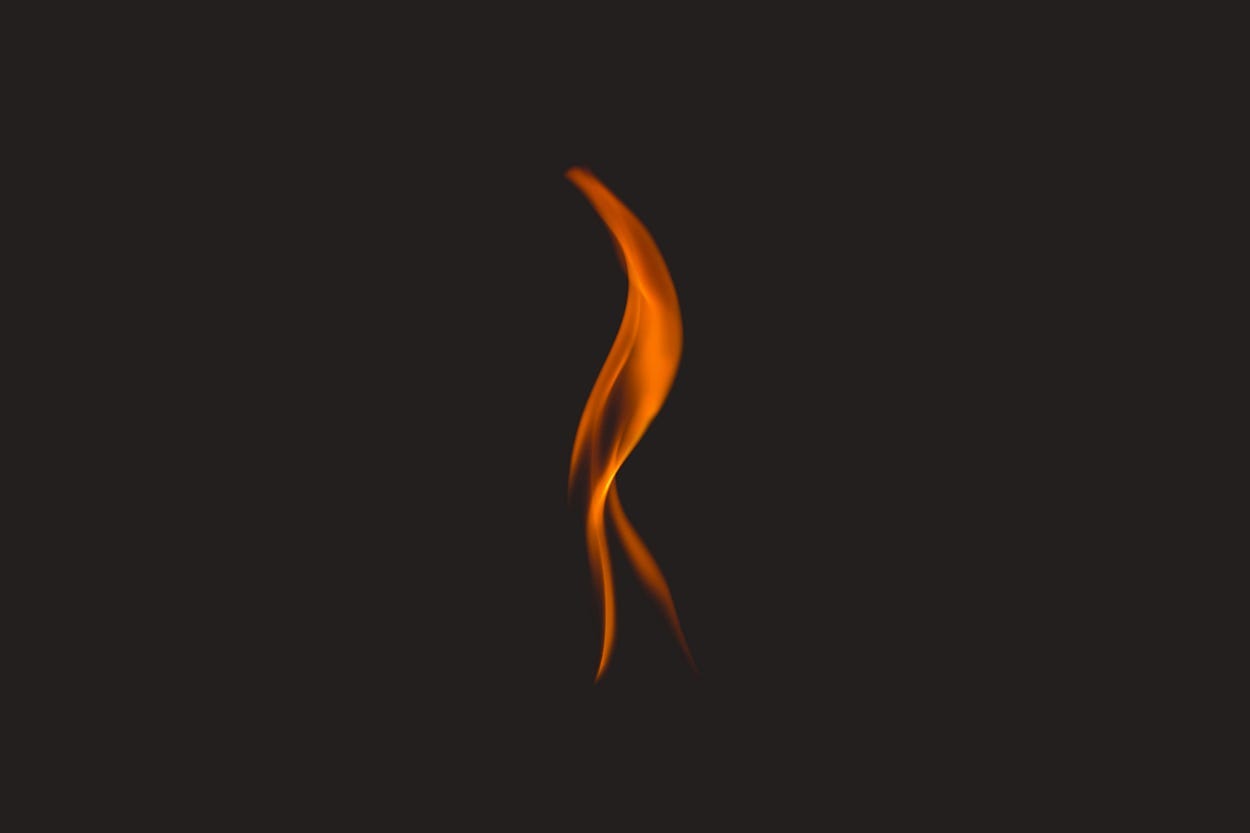
What is burnout, really?
In the past decade, it’s become quite the popular subject, with numerous mass-market books (including mine) being published about its various triggers, structural causes, and remedies. And it’s hardly surprising that’s been the case.
Today’s average worker is over-extended far beyond anything seen in recent history, logging longer hours than ever, often for multiple part-time or gig-economy bosses, in return for dwindling pay and no benefits. Digital tools make it possible for obligation and demand to invade every moment of our days, our bosses always within arm’s reach, a hail of new information, notifications, and messages designed to be distracting constantly raining down and causing us stress.
We did not evolve to be so much, do so much, or process so much information. And when a person is met with more obligations than they could ever reasonably meet, their typical response is to push themselves even harder at first, feeling lazier and lazier as their to-do list only grows in length, before ultimately collapsing in exhaustion.
It’s no wonder so many people are feeling broken under all of this weight, and wondering when they finally be put back together. And that’s often where the public conversation about burnout ends: with an acknowledgement of its many causes, and an affirmation that it is horrible, but the assumption that recovering to pre-burnout productivity levels is both possible and desirable.
The data does not support the assumption that all burned out people can “recover.” And when we fully appreciate what burnout signals in the body, and where it comes from on a social, economic, and psychological level, it should become clear to us that there’s nothing beneficial in returning to an unsustainable status quo.
The term “burned out” is sometimes used to simply mean “stressed” or “tired,” and many organizations benefit from framing the condition in such light terms. Short-term, casual burnout (like you might get after one particularly stressful work deadline, or following final exams) has a positive prognosis: within three months of enjoying a reduced workload and increased time for rest and leisure, 80% of mildly burned-out workers are able to make a full return to their jobs.
But there’s a lot of unanswered questions lurking behind this happy statistic. For instance, how many workers in this economy actually have the ability to take three months off work to focus on burnout recovery? What happens if a mildly burnt-out person does not get that rest, and has to keep toiling away as more deadlines pile up? And what is the point of returning to work if the job is going to remain as grueling and uncontrollable as it was when it first burned the worker out?
Few organizations stand to benefit from confronting these questions. And so, for most laborers who are feeling stressed and overwhelmed, even mild signs of burnout go neglected.
Burnout that is not treated swiftly can become far more severe. Clinical psychologist and burnout expert Arno van Dam writes that when left unattended (or forcibly pushed through), mild burnout can metastasize into clinical burnout, which the International Classification of Diseases defines as feelings of energy depletion, increased mental distance, and a reduced sense of personal agency. Clinically burned-out people are not only tired, they also feel detached from other people and no longer in control of their lives, in other words.
Other researchers describe burnout as consisting of three dimensions: exhaustion, a reduced sense of accomplishment, and depersonalization (a lost sense of self, or a sense of disconnection from one’s own life). They can no longer feel internally rewarded by what work they do complete, and may lose touch with the values that once mattered to them and drove them to do pursue work in the first place.
Additional symptoms such as sleep issues, gastrointestinal problems, increased sensory sensitivities, cognitive decline, pain, and heart palpitations are typically also observed. Clinical burnout sufferers also tend to become profoundly jaded about the state of the world, find it difficult to care for others, as well as themselves, and may become impulsive, easily irritated, and prone to risk-taking.
This is the kind of soul-crushing, physiologically deteriorating burnout I described myself and countless others suffering from in my book Laziness Does Not Exist: the burnout that has you dragging your body across a bathroom floor to cough up blood before wiping your face off, downing a shot, and stepping back onto the sales floor with a false smile on your face and your soul rotting away inside you.
This is exactly the degree of burnout that Hea suffered before her medical leave: “I couldn’t add up columns on a spreadsheet because I could not get my eyes to uncross,” she says. “I went to the emergency room because I thought I might be pre-diabetic. I was, actually, but that wasn’t the reason my eyes were blurry. It was the stress. I couldn’t swallow. I woke up at four in the morning to write emails and I couldn’t get back to sleep if I didn’t finish something.”
As her symptoms worsened, she became despondent, and annoyed with her friends, wondering why she even bothered staying alive.
Unfortunately, clinical burnout has quite a dismal trajectory. Multiple studies by van Dam and others have found that clinical burnout sufferers may require a year or more of rest following treatment before they can feel better, and that some of burnout’s lingering effects don’t go away easily, if at all.
In one study conducted by Anita Eskildsen, for example, burnout sufferers continued to show memory and processing speed declines one year after burnout. Their cognitive processing skills improved slightly since seeking treatment, but the experience of having been burnt out had still left them operating significantly below their non-burned-out peers or their prior self, with no signs of bouncing back.
It took two years for subjects in one of van Dam’s studies to return to “normal” levels of involvement and competence at work. following an incident of clinical burnout. However, even after a multi-year recovery period they still performed worse than the non-burned-out control group on a cognitive task designed to test their planning and preparation abilities. Though they no longer qualified as clinically burned out, former burnout sufferers still reported greater exhaustion, fatigue, depression, and distress than controls.
In his review of the scientific literature, van Dam reports that anywhere from 25% to 50% of clinical burnout sufferers do not make a full recovery even four years after their illness. Studies generally find that burnout sufferers make most of their mental and physical health gains in the first year after treatment, but continue to underperform on neuropsychological tests for many years afterward, compared to control subjects who were never burned out.
People who have experienced burnout report worse memories, slower reaction times, less attentiveness, lower motivation, greater exhaustion, reduced work capability, and more negative health symptoms, long after their period of overwork has stopped. It’s as if burnout sufferers have fallen off their previous life trajectory, and cannot ever climb fully back up.
And that’s just among the people who receive some kind of treatment for their burnout and have the opportunity to rest. I found one study that followed burned-out teachers for seven years and reported over 14% of them remained highly burnt-out the entire time. These teachers continued feeling depersonalized, emotionally drained, ineffective, dizzy, sick to their stomachs, and desperate to leave their jobs for the better part of a decade. But they kept working in spite of it (or more likely, from a lack of other options), lowering their odds of ever healing all the while.

Every burnout I’ve experienced has taken something away from me permanently.
The first was after graduate school. I lost the ability to generate new research ideas, and the will to apply to academic jobs on the tenure track. I’d been an inveterate careerist until then, applying for internships and part-time research assistantships in the summer, stacking my days with extra courses, laboratory shifts, conference applications, and meetings from August to May. I’d read more research papers than almost anyone I knew. And then suddenly, I was miserably sick, and all I wanted to do was lie down and read simple, fluffy novels and Tumblr posts.
I spent a year on the couch under electric blankets, reading Game of Thrones books, penning my own horrible fantasy novel, and sucking down e-cigarettes and protein drinks. After that long, lonely year of rest, my body got better, but my mind never did. My former PhD advisor kept forwarding me job postings, wondering why I didn’t apply to any of them, and asking me if he’d done something wrong to make me like this.
I ignored his messages. I had passed on into another life, and nothing of the academic world could touch me. I lacked the ability to delay gratification very much at all, or run desperately toward some far-off dream, and I never got it back.
My next burnout came after I’d been teaching part-time for a few years. I was in classrooms all across the city from 9 am to 9 pm every day. I caught laryngitis from speaking so much. So I filled my classes with videos and group worksheets. I found an online teaching job at a predatory degree mill, in which I was little more than a glorified quiz scorer, which allowed me to work from home and recoup my energy somewhat. And I lounged around in coffee shops all the rest of my days, chatting with online hypnosis dominants, writing smut, and popping tablets of S-adenosyl-L-methionine, because those were the only things that brought me relief from my depression.
I would go on to teach again, and to even do so well, but I never cared about it with the fervor I had before. And I could no longer fill up every spare moment with wage-earning pursuits. I became addicted to ponderous Youtube essays, and kink, and not being around people, and was horizontal and blissed out in one way or another almost every night.
The last burnout has been a more continual, slow-grinding one, and it came from publishing books. I enjoy writing, I do, but marketing myself hurts. When my first book came out, I was booked solid with radio interviews, podcast recordings, phone calls with print journalists, and speaking engagements that my then-publicist all considered necessary. I said yes to everything, entertaining long chats with business bros who hated my book’s premise during my lunch break while I busily typed away at my next release, and then hopping onto a Zoom for a live NPR spot.
Selling thousands of books and being asked to opine about contemporary issues on a national stage had been my dream since I was a teenager, but once I was living it, I wanted to die.
It was a funny curse: releasing a book about burnout sent me into burnout. I found myself hating the people who read my work but didn’t fully understand it. Repetitive interview questions drew out my impatience. I cancelled events suddenly, and picked fights with old colleagues for completely short-sighted reasons because I was so constantly enraged.
My ability to mask as polite and neurotypical was frayed, and my capacity for long-term thinking was shot. I fully committed myself to a 24/7 Dom-sub relationship without properly talking through the (many) logistical and psychological challenges of it, all because I was longing for a mental escape. I spent money wildly on an entirely new wardrobe and lots of fetish gear. I ate less so that I could get drunk more easily, and washed entire weekends down the drain.
I never regained the ability to do a real full-court-press of book publicity after that, or to perform other symbolic professional niceties. I skip nearly every in-person gathering at my day job, and am a shaky, cold mess who can’t focus at the few I do attend. When my most recent book was released, I kept having nightmares about more being demanded of me than I could handle (though ultimately, I made it out okay).
I can’t seem to stop writing, but I keep dreaming of the end — a life where I don’t have to say anything to anyone, or ever think anything remotely original, where no one relies upon me to “use my platform” and I can just be unremarkable and wordless and yet cared for, like a pet. I imagine that if I keep writing and burning myself out, the day will come when I have no more words in me at all.
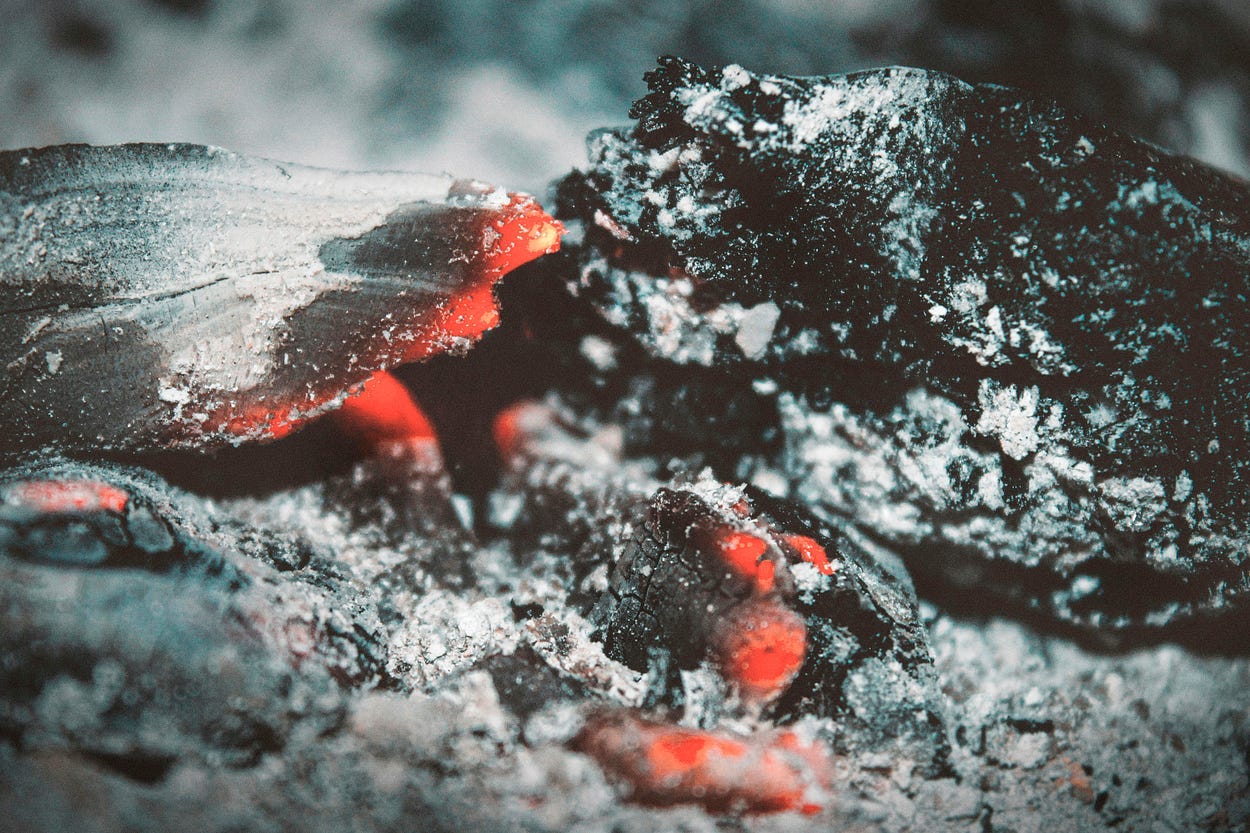
This is what burnout has been like for me, and for many others who have been disabled by it. With each round, it’s made me slower and more fragile, my brain sludgier and less willing to exert effort. Eventually, after a long enough period of rest, some vestige of passion does come back and directs itself at something new. But I never return to being the person I was. And I get more tired, more quickly, each time.
My burnout is unquestionably related to my being Autistic — though distinguishing between “Autistic burnout” and clinical burnout can be quite difficult. Both are a traumatic event caused by exhaustion and overwork. Both lead to depressive symptoms, anxiety, physiological unease, and the loss of skills. Both can take years to abate, with many sufferers never recovering at all.
Autistic burnout and other forms of clinical burnout diverge from one another in only minor ways: Autistics tend to be burned out more easily than other people, because we are stressed by the sensory stimulation and unpredictability of everyday life. We tend to be exhausted by masking — just existing in public and trying to seem normal can be a source of unbearable stress for us — and when we reach the point of burnout, we often lose our ability to mask. This is why burnout is often the first sign a masked Autistic person gets that they are disabled. They’ve built an artificial life of productivity and conformity around themselves, and only recognize it to be a false one when it all comes crashing down.
When we burn out, Autistic people’s skills losses can be a bit more obvious than others’: we may lose the ability to toilet, feed ourselves, or speak. We may behave more “childishly,” clinging to baby blankets or hiding from strangers behind furniture, or simply collapsing into overwhelmed tears at the first sign of criticism. We typically require many years of reduced demand in order to become more functional again, but we are especially unlikely to make the “full recovery” that most burnout researchers chase.
Our intolerance for excessive demand is a debilitating, progressive illness, though it can also be a life-saving one.
In all these ways, we burnt-out Autistics have a great deal in common with the 25 to 50% of clinical burnout patients who never recover — as well as any human being with a body that ages. We are forever changing, responding to our circumstances and bearing the marks of our experiences. What hurt us in the past, we withdraw from. What yields us no rewards, we learn not to pursue. And with time, what we once did, we can no longer do.
This is the inevitable course of all things: a steady collapsing into slowness, neediness, and decay. But it is only a problem when we expect it not to be.
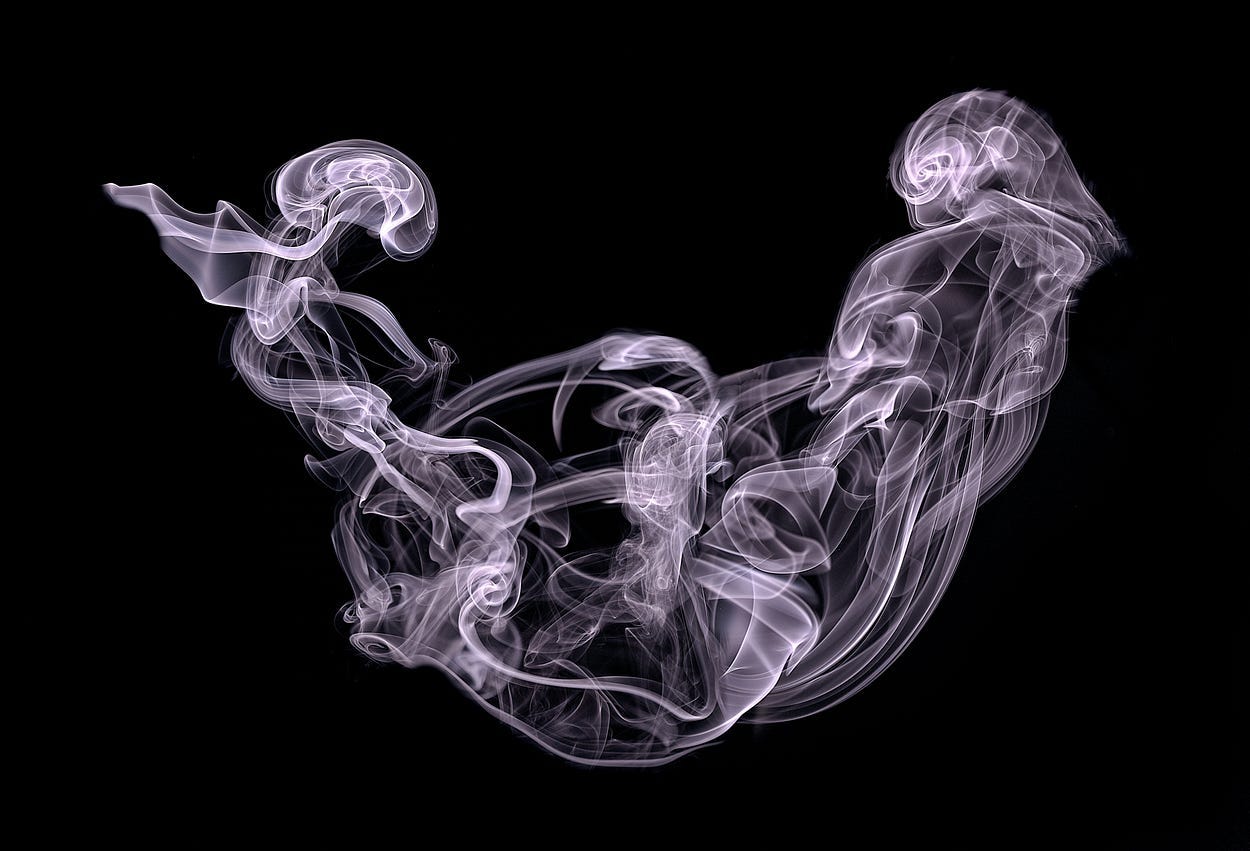
Since her burnout began, Hea has been diagnosed with Autism, complex post-traumatic stress disorder, pre-diabetes, and chronic pain syndrome. But none of that has stopped her from believing she should be more capable than she is.
“I get up early and sit at the computer just to punish myself. I look at job applications all day, with a TV show on in the background, because I don’t deserve to just watch something. I promised myself I would spend my time off making pottery, or running a marathon. Maybe volunteering. Instead I play games on my phone and hate myself all day.”
When I ask Hea if she’s really internalized the fact that she is disabled, she shakes her head in resistance.
“Am I going to have to sleep fourteen hours a day forever? I don’t understand why it is taking so long to get better. Why simple things like dropping off the rent check, that I always used to do with no problem, seems impossible for me to do now.”
These are fair questions, and ones that I hear a lot, from survivors of Autistic burnout and “regular” clinical burnout alike. No matter how profoundly drained and depressed a burned-out person might be (and no matter how much mistreatment got them to that point) they are usually desperate to return to their old, pre-burnout baseline as swiftly as possible, so that the rest of their life doesn’t collapse.
Our livelihood under capitalism hinges on our ability to produce. If we can’t work, we can’t pay the rent. If we’re too tired to clean our homes, we’re seen as less “professional” during Zoom-based job interviews. If we fall behind on doctor’s visits and insurance paperwork because can’t focus, we may lose access to the medications and benefits that prop our lives up. We may even fear that by failing to get “better,” our partners and loved ones will tire of us and leave.
Given all this, it makes sense that when a burned-out person notices their abilities slipping, they scramble to recoup them as fast as they can. But burnout is one of the body’s final defenses against unrelenting, unsustainable demand, and it is only by reevaluating those demands and abandoning a huge number of them that we can actually begin to heal — and heal as the people we are, not the hyper-reliable workhorses we long to be.
Van Dam observes that clinical burnout patients tend to suffer from an excess of perseverance, rather than the opposite: “Patients with clinical burnout…report that they ignored stress symptoms for several years,” he writes. “Living a stressful life was a normal condition for them. Some were not even aware of the stressfulness of their lives, until they collapsed.”
Instead of seeking help for workplace problems or reducing their workload, as most people do, clinical burnout sufferers typically push themselves through unpleasant circumstances and avoid asking for help. They’re also less likely to give up when placed under frustrating circumstances, instead throttling the gas in hopes that their problems can be fixed with extra effort. They become hyperactive, unable to rest or enjoy holidays, their bodies wired to treat work as the solution to every problem. It is only after living at this unrelenting pace for years that they tumble into severe burnout.
In all these ways the clinical burnout once again resembles the masked Autistic — in denial about the extent of their need, consumed with a self-hatred, always concealing their true feelings, incapable of trusting others to help them, and desperate to fawn, camouflage, and compensate their way to temporary social acceptance.
Among both masked Autistics and overworked employees, the people most likely to reach catastrophic, body-breaking levels of burnout are the people most primed to ignore their own physical boundaries for as long as possible. Clinical burnout sufferers work far past the point that virtually anyone else would ask for help, take a break, or stop caring about their work. And when viewed from this perspective, we can see burnout as the saving grace of the compulsive workaholic — and the path to liberation for the masked disabled person who has nearly killed themselves trying to pass as a diligent worker bee.
Most disabled people learn to stifle our inner cries of exhaustion and pain from an early age. Excruciating belly aches are just idle whining to our irritated caregivers; our slow movements and endless questions are interpreted by teachers as us being “stupid” or deliberate class clowns. We’re told that in the ‘real world,’ nobody will have patience for our crying jags, plugged ears, desire to be hugged, or any of our usual “theatrics,” and that if we don’t get over it and grow up, we’ll be alone, unhoused, and starving.
We come to assume that everyone around us must be feeling as much discomfort as we are, and that they persevere silently through it anyway. (And many of the people around us are silently suffering, in fact). We start to doubt our every feeling, and so we can’t distinguish between a bout of exhaustion that really merits a break and us being whiny, entitled crybabies who will never know security if we don’t figure out how to toughen up. Hard work and compliance become the only tools we can use to protect ourselves, and we lean on them heavily, until they give out.
I lived this way, and Hea did too. Back in my adjunct teaching days, when I would get home at 10 pm after a full twelve hours of teaching, I would drink pot after pot of chamomile tea, vibrating with anxiety and dreading the morning to come. Some evenings, I’d go through an entire box of tea until I felt a single wisp of calmness moving into my belly.
My guts were continually tense and tangled up — every morning I started my teaching day with spurts of nervous diarrhea. I kept forcing the words out when my throat was hoarse, kept dragging my body onto campus no matter how much it protested, and kept telling myself that if I didn’t toughen up, I’d never get by.
Hea says that when she was working, she smoked compulsively and tore at her skin and hair. “My job put me in bars until late at night, working with clients. Stepping out for a cigarette was a break from all the noise. I’d suck down those Marlboro Golds and rip off my cuticles. I picked at my face in the mirror. I’d get up at six in the morning to work out and go into the office on no sleep. To me that was being committed.”
Both disabled and burnt-out people are terrified of seeming “lazy.”
In truth, no one can work forty (or more) hours per week, withstand a commute, keep their car repaired, their fridge stocked, their floors mopped, their kids and pets looked after, their lawns manicured, their bodies exercised, their bills paid, and all their messages answered without help. Yet the more that a person’s body and brain diverges from this impossible standard of independence, the less society regards them as human.
Disabled people are denied crucial legal and economic freedoms simply because we cannot work hard “enough.” The world is made deliberately inaccessible to us, so that forcing us to hide away, so our daily struggles are not seen. This only makes other people more wary of revealing their own weakness. To take a sick day or use a cane is to admit you’ve become less capable, and therefore less worthy of esteem.
For burnt out people, the unrelenting need for rest can seem shameful. And yet it is the only way to halt the bleeding of overwork. When a long-term eating disorder patient enters into recovery, they need to ingest many thousands more calories than most people consume, for a prolonged period, in order to rebuild the body’s damaged tissues and refuel. Their hunger becomes insistent, and extreme. There is no negotiating with this need, no convincing it that it asks for “too much” — the eating disorder sufferer has already spent too much time denying themselves. With its extreme hunger, the body claims its survival.
Among the exploited and overworked, the compulsion to sleep and stare off into space can feel similarly uncontrollable. And yet, it is also a blessing, a ravenous hungering for more life.
Under capitalism, it’s difficult to fathom how you can even be a person when you’re not doing anything impressive. But we are animals, wired to sleep, eat, drink, urinate, defecate, and stay comfortable above all else. The mere act of living is the greatest thing that we will ever create. It is our strongest drive. And it continues, sometimes with great difficulty, for as long as it can, until that great and final release from all duty.
With age, all of our bodies become weaker, slower, sicker, and eventually, utterly incapable of doing anything at all. We’ve fought so hard to deny the reality of this, to imagine that we can maintain high levels of activity and accomplishment forever. But we can’t. Even when we’re not actively burning ourselves out, we are still getting wearier, day by day.
There is only one place where all of our efforts are heading, and it is our grave.
We have enacted so much violence upon ourselves and others in our struggle to seem strong. We’ve persevered far too much.
Maybe it’s time to embrace being weak.

Burnout has taken a lot from me. But in what I’ve lost, I’ve found myself.
Instead of investing in my career, I buy silly leather outfits and crawl around on the floor pretending to be a puppy dog with people who enjoy doing the same. This gets me out of my head. I read books, and noodle around with my novel, and I mostly don’t wonder where all of this is headed. I can feel oblivion coming for me, as it comes one day for all people, and in the meantime I am getting better at studying the solitude to be found on earth.
On good days, I can allow the animal inside me to luxuriate in the pleasures of a long stretch across the bed, a mouth-watering bowl of pasta with vodka sauce, the biting wind on my neck as I walk. On bad days, I wonder why my body is still so insistent upon soaking up so much pleasure, when I have done nothing to earn it.
I know that I will only get more easily rattled, sensitive, and weak with time. I believe I have some people around me who can deal with that. About 85% of my friend group is unemployed, by my count. They’re frazzled, burnt out, broken-backed, traumatized, and tired. I spend a lot of my time collapsed on their sofas, listening to them complain about their health problems and not offering fake-supportive cliches. We play video games, watch movies, get high, order takeout, and rearrange the furniture.
It’s not showy, and it makes nobody any money, but it’s a life. When I imagine growing old, I hope it’s something like this, lots of time with the people I love, and lots of pleasure amidst the aching joints and wet coughs.
Hea is still trying to figure out what her post-burnout life will look like.
“I figured out I can’t make sculptures from raw clay anymore, but I can paint and glaze ceramics that come pre-made,” she says. “I can’t cook a meal from scratch, but I can crack an egg in a bag of frozen hash and add seasoning.” These small accomplishments sustain her.
“I’m trying to find gratitude that my husband and parents are able to take care of me,” she shares. “That was my therapy homework this week: to journal about things I am grateful for every day. Some days it is the dumbest stuff. Like: I saw a Shiba Inu. I made us really good hot chocolate with raspberry sauce.”
She hesitates, and begins to say her reactions make her sound “like a little kid.” It’s an instinct I know well. Some of the greatest pleasures of my life are simply being held, of petting a creature or being petted like one, of eating marshmallows and peanut butter in front of the projector while I watch a show. It can all feel so pitiful, how much comfort I need, that my heart is this ripped-open hole pulling inward with so much need. My life with disability can look so damn childish and small.
But taken from another angle, my life has become so much vaster than it was before. How many meals, how many hugs, how many satisfyingly rough textures under my fingertips did I miss, when I was dashing from one job to another? All of the impressive work that I did when I was getting burnt out is gone from me now, but the pleasures and relationships that I’ve cultivated have stayed.
Burnout asks me whether I really need to claw at the whole world with both hands. And it suggests that what I’m holding is already more than enough. There is a wealth all around. I need only to dwell within it, and witness it, rather than rushing on to the next thing. And I need people, of course, to care for and receive care from, so that I can continue to remain here as long as my body lets me.




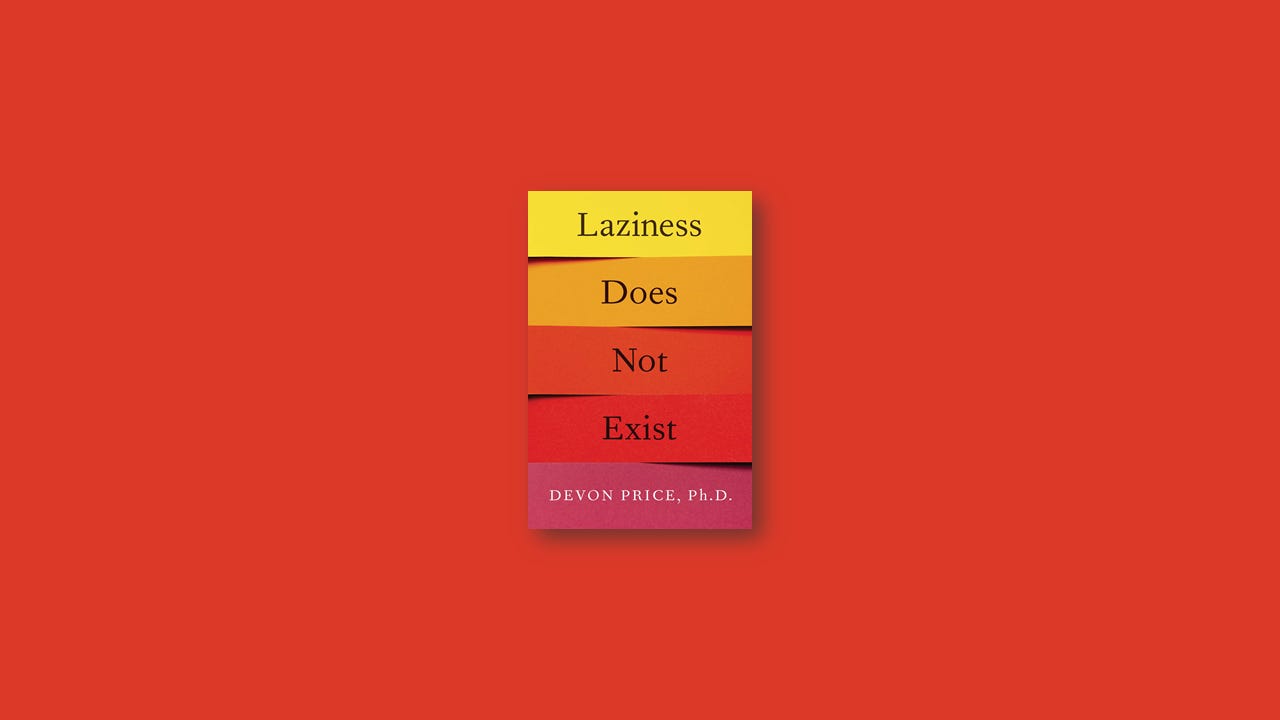



sometimes I feel guilty because I didn't work as hard or as long as most people before coming down with 'burnout' but I have to remind myself of the people that I cared for, for who learning one single piece of information as simple as the name of a new animal took at least a month of careful care and scaffolding. Pushing them further would have pushed them into burnout, and I wouldn't have judged them for it. We are all different with what we can tolerate before we crack. I just have to make myself believe that itss true for me too
It was a jarring notification to have pop up on my phone but I don’t know if I’ve ever felt so seen by an article before. It’s been nearly eight years since I burned out, not with a fizzle but with a bang, and the bulk of the recovery has been working through the grief of the life/person I can no longer access and never will again. Thank you for writing this.